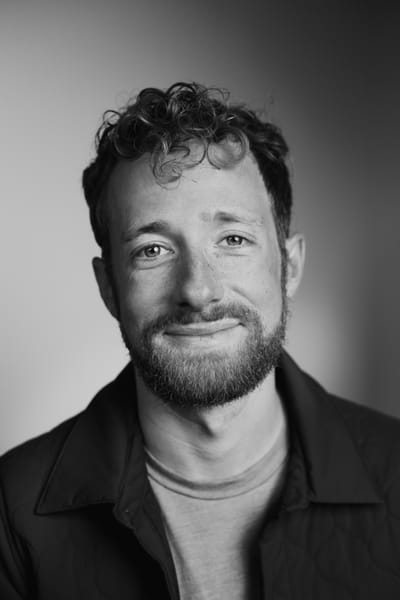When most of us are confronted with a significant challenge, there is the choice to endure or not. But what about those little challenges throughout the day? Those simple choices like getting out of bed early to go workout versus sleeping in? Or the choice to read a book versus scroll on Instagram or watch another YouTube video. While they seem like smaller challenges, the behavior patterns and the choice remains consistent, we endure with our original intention or not. I’ve been struggling with some of these decisions lately but I think I may have had a pretty major breakthrough. And it essentially comes down to one word: patience.
I’ve been getting back into long distance swimming, as it is something that I have always enjoyed doing. There are these home videos of me getting swim lessons when I was probably around 5 years old and it seemed that I was more proficient in the water than I was on land. As that developed later in life, I was a swimmer in high school, and progressed into swimming in triathlon. While long distance triathlon was a passion of mine, it was definitely a stage in my life. But the one thing that I always missed was the swimming. There is something about swimming in the water, gliding, that is irreplaceable. While I have been swimming a lot this winter, I decided to sign up for an event in my town for open water swimming in the next few months. This instantly sparked the athlete mindset in me. Which more directly means, train with focus, train with intensity, and show up in the best shape possible. The event is a 2.4 mile swim, the same distance I did in Ironman but without all the biking and running. It is a distance I feel comfortable with because there are moments where you almost forget you are racing and you are just immersed in the swimming; a literal state of flow.
As a baseline, I decided to swim the race distance in the pool to see how the body is performing. After a bit of a longer warmup that I would do for a race, I hit start on my watch and began swimming at the pace I would want to be at for the full length of the race. I was CRUISING. I felt really good in the water, stopped counting laps, and just went back and forth, back and forth, and back and forth again. Whenever you do long distance sports, it becomes more of a mind game than anything else. One of the questions I got the most when I did long distance triathlon was, “What do you think about when you are racing for that long?” Well, all sorts of things and none of them are either memorable or particularly groundbreaking. Sometimes it is thinking about pacing, form, breathing, etc. Other times it is thinking about what I want to eat after working out, working through a problem I am trying to solve in life, or just even staring at the black line at the bottom of the pool. Either way, the time just passes.
However, at a certain point, the body starts communicating. It is either hungry, sore, heart rate increasing, feeling out of balance, so many things and they don’t always happen one at a time. This, in the case of my swimming, is that challenge I talked about in the very beginning. It’s the moment when your mind begins to tell you that maybe you should take a break, slow down, or stop altogether. For me, the thought was more specifically that I could stop a bit early, still feel good about the workout, and not push it too far. There is, of course, the thought of pushing too hard into injury. But I wasn’t swimming at a pace I couldn’t maintain, I wasn’t out of breath, I was just battling my mind. I hadn’t looked at my watch while swimming since I had started, committed to just swimming and trying to learn what the distance felt like intuitively. But I couldn’t take it, I needed a reference. I look at my watch and I was at 2500 yards. I still had 1750 to go. My first thought was wow, I’m barely over halfway and it feels like this, there is no way I can sustain it. Am I out of shape? Did I fuel my body right? All of these questions came rushing in. But suddenly, I was at 2650 yards. 2 miles is only 3300 yards in the pool so I thought to myself, “Ok, just get to 3300 and call it good because then it will at least be a solid checkpoint.” I continued to swim, feeling the positivity that I was getting close to the new benchmark I had set. But it wasn’t want I really wanted to do, I really wanted to finish the full distance. As I passed 3100 yards, I felt pretty good in the water. I decided that I would just add another 500 yards because it’s not that much in comparison to what I had already done. As I passed 3600 yards, I now had just over another 500 to go and then I would have reached my ultimate goal from the beginning. Long story short, I finished it, held great pace at the end, and even could have swam more. When I looked at the data afterwards, I held an almost identical pace, lap after lap. It felt very different in the water, almost like a roller coaster to finally finish the workout. But the data tells a much different story.
The main difference between the data and the feeling in the water is the way the mind perceived it. I perceived that I was going slower, losing form, needed to rethink my approach, thinking that everything was going wrong, but it wasn’t. And this lesson applies not just to the pool, but to many of the things we pursue in life. When things get difficult, especially something that we believe in, we allow the doubt to overpower us. It is an inevitable reaction from our mind trying to protect ourselves from the unknown, or pushing through what we believe is incapable of achieving. But rather than abandoning the endeavor, I believe that the best way to address it is with patience. The patience allows the story to play out a bit, it allows for more paths through the challenge to reveal themselves. By applying patience to almost any challenge, it also removes the fear associated with it. Suddenly, problems are approached with a certain level of curiosity, a willingness to see if that fear is as scary as we thought it was.
Patience is a word that I am still getting acquainted with as I learn to apply it to different areas of life. But it might just be a superpower that can take on fear, challenges, and help us achieve the grand things we want to achieve in life for ourselves. When it is a choice to get up in the morning and work out versus sleep longer, give working out a try and have some patience to see how it goes. When you pick up the book and feel the need to grab the phone, have some patience and give the book a bit more time. I’ll be jumping in the pool again tomorrow and I’m sure the data afterwards will say that patience was a good choice.


